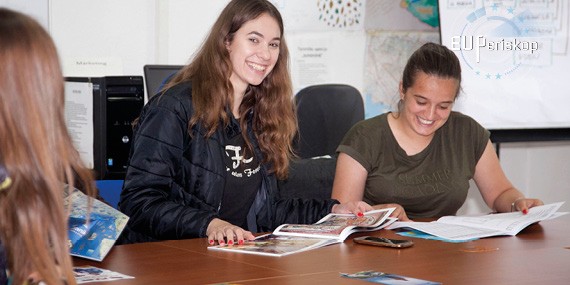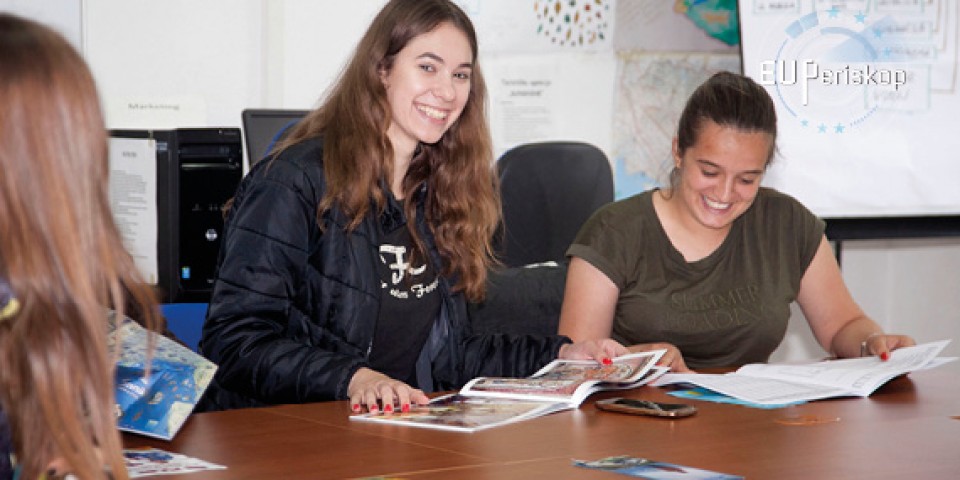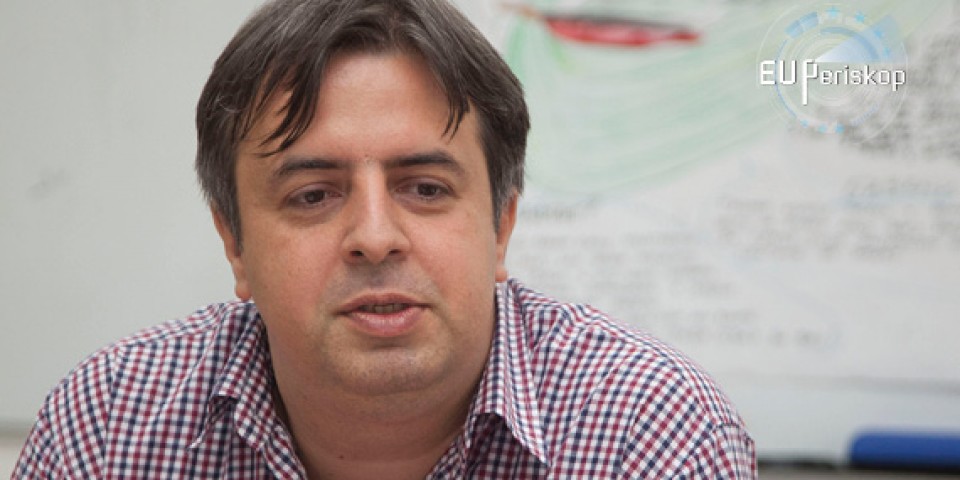
Young People in BiH Require Entrepreneurial Skills
In order to successfully implement a business idea, young people in Bosnia and Herzegovina require numerous skills. Entrepreneurial thinking and skills are necessary for them to realise their ideas. D...
In order to successfully implement a business idea, young people in Bosnia and Herzegovina require numerous skills. Entrepreneurial thinking and skills are necessary for them to realise their ideas. Development of entrepreneurial skills is recognised across the European Union as one of the key tools for empowerment of young people to enable them to successfully recognise the needs of the labour market and harmonise them with the educational system.
The project “Entrepreneurial learning in educational systems in BiH”, which was supported by the European Union, developed a model for establishment of school partnerships and developed a Guide for School Partnership. In the pilot phase, the project included 22 primary schools, high schools and vocational schools spread across the country. Thirty different partnerships were established between schools and organisations such as companies, local governments and civil society organisations.
One of the most successful examples of the project is the High School for Hospitality and Trade in Banja Luka that established contact with schools across the region and achieved numerous successful projects. The school’s management, staff and students are still benefiting from the knowledge and experience gained through education and trainings conducted through the project. “Our professions furnish us with the possibility to encourage entrepreneurial thinking and develop entrepreneurial ideas. The project helped our management, professors and students,” says prof. Miloš Kolundžija from the High School for Hospitality and Trade.
“In the last couple of years our management cooperated with several schools, primarily those that have the same professional orientation as ours from Maribor, Novo Mesto, Velenje in Slovenia and the High School for Hospitality in Belgrade. We have recently signed a Memorandum of Cooperation with a school from Kikinda, and especially important for us is the establishment of holiday training courses. Twelve of our students and a mentor are staying at the resort of Njivine on the Island Krk. We had such training courses before, but we had to stop them for a while. Such an opportunity is something that truly enables our students to gain practical experience and knowledge,” says prof. Kolundžija.
The success of the business model developed by the school has made them an attractive business partner. The fact that students are sought by employers after graduation can be viewed as a key result of joint cooperation of the school management, professors who have the knowledge and know-how and active and engaged students. “I would highlight that this is due to all of the professors involved in the project, especially our development team, which comprises mostly younger professors who have a different approach to the students. Strong cooperation with students is the cornerstone of our achievements. We have a very successful culinary programme with professors Predrag Tošić, Mario Piljagić, Mirko Milaković and others who have established different programmes in Russia, Serbia, Bosnia and Herzegovina and the latest one in Kitzbuhel.”
“Through this project the school’s management has developed an understanding for our future development, shared that knowledge with the professors and then on to the students themselves. All of our activities and our success is owed to our hardworking students and their successful entrepreneurial spirit. The project gave us the direction in which to proceed and we have managed to network with schools from BiH and schools from the EU. As part of an Erasmus+ project, we are partners with a school from Slovenia,” says professor Kolundžija.
Although the school’s facilities are well below European standards, it does not stop the students being equally or even more proactive than their European peers. “Based on the Austrian model, we have the Cabinet for entrepreneurial learning, where students from the tourism department practice business development. They simulate the work of a tourist agency and have everything they need. They practice accounting, marketing, create websites for booking, and receive questions about booking, so that the simulation is as realistic as possible. They are connected to other Cabinets, some 580 of them in the country and similar ones in the region, so they can exchange knowledge, experience and ideas”, says professor.
The Professor is very proud of his students and their activism. He praises their ideas for ‘The Alley of Graduates’ , an activity during which each class of graduates plants a tree in Banja Luka, and in this they were supported by other schools from the city. The students participate in culinary nights, humanitarian actions and have no problem in being proactive and hardworking. They even initiated a donor night for getting funds to equip the culinary cabinet in the school. The driving force of these young minds clearly shows that with a little support and guidance, young people can very successfully produce concrete change and engage in socially responsible projects.
The EU-funded project ‘Support to Entrepreneurial Learning in Educational Systems in BiH, Phase II’ achieved concrete results in training over 400 teachers in the country and developing a training methodology for future use, given that they are over 30,000 teachers in the country. By supporting the formation of school partnerships, educational institutions across the country have been successfully connected with local companies, communities and civil society organisations with the aim to support the harmonisation of the needs of the labour market and school curricula.




